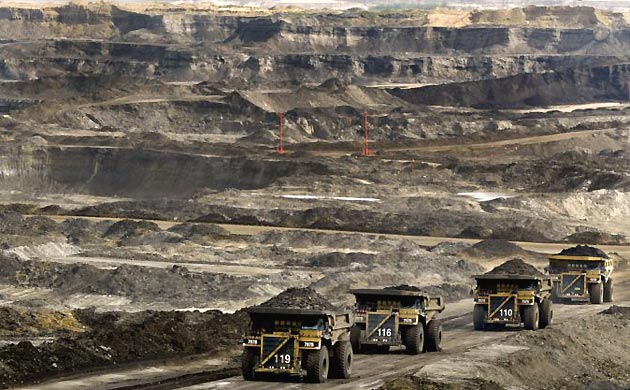Rep. Henry Waxman (D-CA), a senior member of Congress and chair of the powerful Congressional Committee on Energy and Commerce has penned a public letter to the Secretary of State, Hilary Rodham Clinton, in which he states strong opposition to a planned oil pipeline that would transport Canada’s controversial tar sands oil to the US Gulf Coast.
In the letter Waxman writes:
The State Department’s decision on whether to permit this pipeline represents a critical choice about America’s energy future.
This pipeline is a multi-billion dollar investment to expand our reliance on the dirtiest source of transportation fuel currently available. While I strongly support the President’s efforts to move America to a clean energy economy, I am concerned that the Keystone XL pipeline would be a step in the wrong direction. (hftsuuuttt)
You can download a full PDF copy of the letter from Waxman to Clinton here.
Upon completion, the Keystone XL pipeline would run 2,151 miles from Canada into the United States and then another 1,661 miles to the Gulf Coast.
The Canadian oil sands have come under ever-increasing scrutiny as the public becomes more aware of the human health and environmental impacts.
“Chairman Waxman’s letter signals that the infrastructure linchpin for the dirtiest oil in the world will no longer progress quietly through the regulatory process. The Obama Administration cannot make this decision in the back rooms; instead it must decide very publicly whether to start breaking our oil addiction now, it put it off for another time,” said Kenny Bruno from Corporate Ethics International in response to the letter issued by Rep. Waxman.
Impacts of the Canadian tar sands include:
1. Oil sands mining is licensed to use twice the amount of fresh water that the entire city of Calgary uses in a year. The water requirements for oil sands projects range from 2.5 to 4.0 barrels of water for each barrel of oil produced.
2. At least 90% of the fresh water used in the oil sands ends up in tailing lakes so toxic that propane cannons and floating scarecrows are used to keep ducks from landing in them.
3. A 2003 report concluded that “an accident related to the failure of one of the oil sands tailings ponds could have catastrophic impact in the aquatic ecosystem of the Mackenzie River Basin due to the size of these lakes and their proximity to the Athabasca River.”
4. In April, 2008 a flock of migrating ducks landed on a tar sands toxic lake and died.
5. The toxic tailing lakes are considered one of the largest human-made structures in the world. The toxic lakes in Northern Alberta span 50 square kilometers and can be seen from space.
6. Producing a barrel of oil from the oil sands produces three times more greenhouse gas emissions than a barrel of conventional oil. In 2004, oil sands production surpassed 160 000 cubic meters (one million barrels) per day; by 2015, oil sands production is expected to more than double to about 340 000 cubic meters (2.2 million barrels) per day.
7. The oil sands operations are the fastest growing source of heat-trapping greenhouse gas in Canada. By 2020 the oil sands will release twice the amount produced currently by all the cars and trucks in Canada.
8. The Alberta Oil Sands Operation are the largest single point source of greenhouse gas emissions in Canada.
9. By 2015, the Alberta Oil Sands are expected to emit more greenhouse gases than the nation of Denmark (pop. 5.4 million).
Here’s a recent MTV News Special on Canada’s tar sands:
Subscribe to our newsletter
Stay up to date with DeSmog news and alerts







